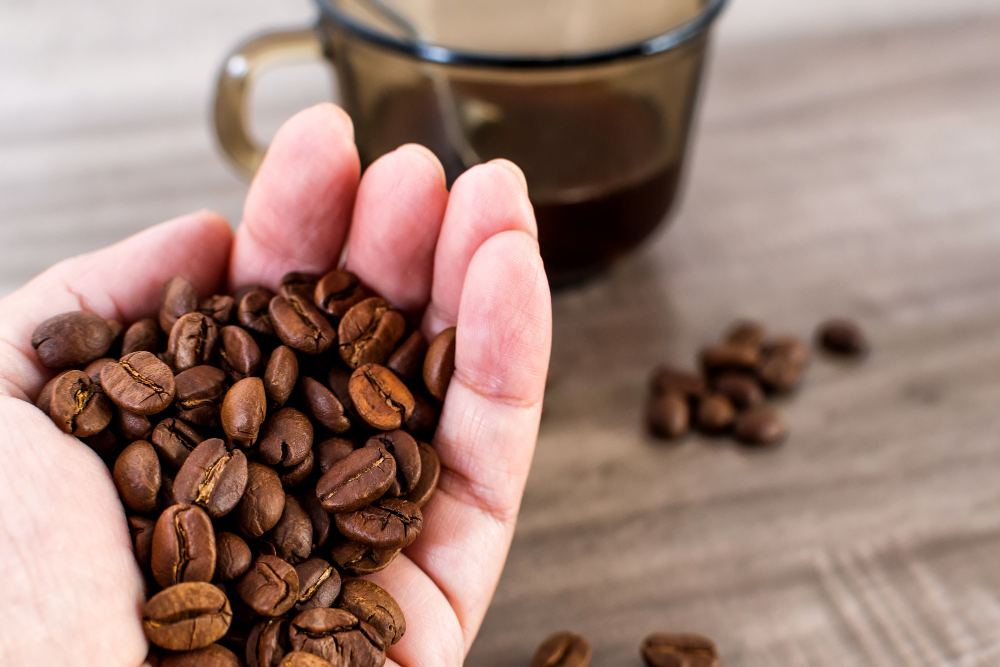Does Coffee Cause Bloating? It’s a question that has percolated through discussions, leaving many avid coffee drinkers concerned about their favorite brew. In this detailed exploration, we unravel the mysteries surrounding this topic, addressing common concerns and providing expert insights.

Brewing the Truth
Coffee lovers worldwide have long debated whether their cherished beverage is to blame for bloating. Let’s dissect this topic and separate fact from fiction.
Understanding the Basics
To comprehend the relationship between coffee and this condition, it’s crucial to delve into the digestive process. When you sip your morning coffee, your stomach produces gastric acid. For some individuals, this increase in acidity can lead to bloating and discomfort.
The Role of Caffeine
Caffeine, a natural stimulant found in coffee, can sometimes aggravate bloating. It stimulates the gastrointestinal tract, potentially causing bloating and gas, especially in those with sensitive stomachs.
Brewing the Truth: Dispelling Myths
Myth 1: Coffee Always Causes Bloating Contrary to popular belief, not everyone experiences this after consuming coffee. Factors such as individual tolerance levels and overall diet play a significant role.
Myth 2: Only Low-Quality Coffee Causes Bloating The quality of your coffee matters, but even high-quality blends can cause this feeling. It’s more about your body’s reaction to caffeine and acidity than the coffee’s quality.
Myth 3: Decaffeinated Coffee Is Bloating-Free While decaffeinated coffee contains less caffeine, it still retains acidity. Therefore, it might not eliminate this condition entirely.
Expert Insights on Brewing the Truth
We’ve heard from coffee lovers, delved into the science, and debunked some myths. Now, let’s hear from experts in the field who can provide valuable insights into the relationship between coffee and bloating.
Dr. Sarah Thompson, Gastroenterologist
Dr. Thompson explains, “Bloating after coffee consumption is not uncommon. It’s mainly due to the acidity and caffeine content. Both can irritate the gastrointestinal tract, leading to gas and bloating. However, not everyone experiences this, and factors like tolerance levels and the presence of underlying conditions matter.”
Nutritionist Jane Collins
According to Jane Collins, “Diet plays a significant role. If your overall diet is high in processed foods and lacks fiber, coffee might exacerbate this condition. A balanced diet with plenty of fiber can help mitigate these effects.”
Coffee Enthusiast and Blogger, Mark Davis
Mark Davis, a passionate coffee enthusiast, shares his experience, “As someone who loves coffee, I did experience bloating initially. However, I made some changes. I switched to cold brew, which is gentler on the stomach, and I ensured I wasn’t drinking coffee on an empty stomach. These adjustments significantly reduced this condition.”

Tips to Keep it under control
1. Opt for Low-Acidity Coffee
Choosing coffee with lower acidity levels can be gentler on your stomach. Look for beans labeled as “low-acid” or “smooth” when shopping for coffee.
2. Drink in Moderation
Excess consumption of coffee can exacerbate this condition. Limit your daily intake and monitor how your body reacts.
3. Avoid Drinking on an Empty Stomach
Having a meal before your coffee can help create a protective barrier against acidity and reduce the chances of bloating.
4. Experiment with Brewing Methods
As mentioned earlier, cold brew coffee is known for its lower acidity. You can also consider brewing methods like French press or pour-over, which yield milder coffee.
The Role of Gut Health
Your gut health can significantly impact how your body reacts to coffee. A healthy gut is better equipped to handle the acidity and caffeine found in coffee. To improve your gut health:
1. Incorporate Probiotics
Probiotic-rich foods like yogurt, kefir, and sauerkraut can help maintain a healthy balance of gut bacteria, potentially reducing bloating.
2. Eat Fiber-Rich Foods
Fiber supports healthy digestion and can mitigate the effects of coffee-induced acidity.
3. Stay Hydrated
Proper hydration ensures that your digestive system functions optimally. Drink plenty of water alongside your coffee.
Personalized Approaches
Coffee and bloating are not universal experiences. Your response may vary from others. Consider these personalized approaches:
1. Keep a Coffee Diary
Maintain a journal tracking your coffee intake, the type of coffee, and any associated symptoms. This can help identify patterns and pinpoint triggers.
2. Experiment with Coffee Alternatives
If you find that coffee consistently leads to this condition, try coffee alternatives like herbal teas, chicory coffee, or even hot water with lemon.
Brewing the Truth: Your Journey
Your journey to brewing the truth about coffee and bloating is a personal one. Remember, it’s essential to enjoy your coffee while considering your body’s unique responses. By following the tips and insights provided in this article, you can make informed choices and savor your favorite brew without the discomfort of bloating.
So, the next time you reach for your coffee mug, you can do so with confidence, knowing that you’re equipped with knowledge to mitigate any potential bloating effects.
The Bigger Picture
When evaluating the impact of coffee on your digestive system, it’s crucial to consider the broader context. What you eat, how you prepare your coffee, your overall health, and your personal tolerance levels all come into play. Bloating, in the grand scheme of things, is a minor concern when compared to the joy and energy that a well-brewed cup of coffee can bring to your day.
The Coffee Lover’s Dilemma
For coffee enthusiasts, the relationship between coffee and bloating can be a complex one. While some may experience bloating, others may continue to enjoy their coffee without any adverse effects. This diversity in responses underlines the importance of individual factors in this equation.
Conclusion
In conclusion, the relationship between coffee and this condition isn’t one-size-fits-all. Factors like individual tolerance, overall diet, coffee type, and brewing method play pivotal roles. By making informed choices and listening to your body, you can continue to enjoy your favorite brew without the discomfort of excessive bloating.
FAQs
Can I Substitute Coffee with Herbal Tea?
Herbal teas, like peppermint or ginger, are known for their digestive benefits and are often gentler on the stomach. They can be excellent coffee alternatives.
What Are Some Bloating-Reducing Ingredients to Add to Coffee?
If you can’t part with your daily cup of joe, try adding a pinch of cinnamon or ginger to your coffee. These ingredients can help alleviate bloating.
Does Cold Brew Coffee Have Less Caffeine?
Cold brew coffee does contain caffeine, but it’s often perceived as milder due to its lower acidity. The caffeine content might still vary depending on the brewing process and coffee bean type.
Can Bloating After Coffee Indicate an Underlying Condition?
While occasional bloating after coffee is common, persistent and severe bloating could be a sign of an underlying digestive issue. It’s advisable to consult a healthcare professional in such cases.
Connect with me on Instagram

